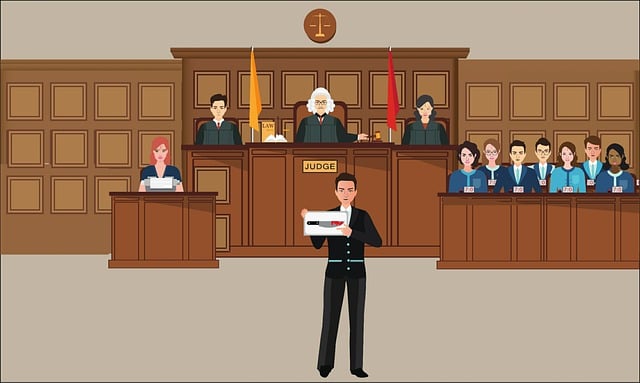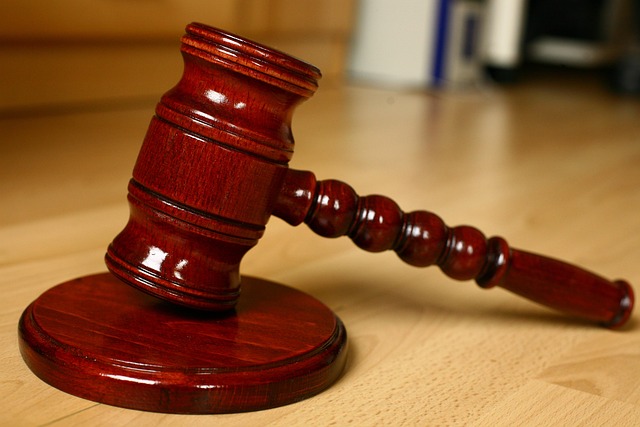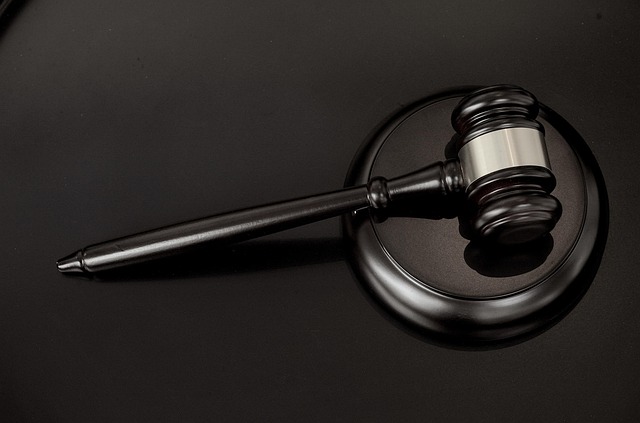Choosing a Skilled Traumatic Brain Injury Lawyer in Miami, FL

Victims of traumatic brain injuries (TBIs) caused by negligence in Miami, Florida, should consult wi…….
In the vibrant city of Miami, Florida, navigating legal complexities following a traumatic brain injury (TBI) can be an overwhelming task for victims and their families. This comprehensive article delves into the critical role played by traumatic brain injury lawyers in Miami, exploring their expertise, impact, and the intricate web of legal considerations surrounding TBI cases. By understanding the dynamics of this specialized practice area, readers will gain valuable insights into securing justice and compensation for TBI-related injuries in Florida’s bustling metropolis.
Definition: A traumatic brain injury lawyer in Miami, Florida, is a legal professional specializing in representing individuals who have suffered brain injuries due to accidents, negligence, or intentional acts. These lawyers possess expertise in navigating the complexities of TBI cases, which often involve medical, legal, and insurance aspects.
Core Components:
Medical Expertise: TBILs (Traumatic Brain Injury Lawyers) collaborate closely with medical professionals, including neurologists, neuropsychologists, and rehabilitation specialists, to understand the nuances of TBI diagnosis and prognosis. They interpret medical reports and translate complex medical jargon into accessible information for clients and courts.
Legal Knowledge: They are well-versed in Florida’s tort law, personal injury regulations, and case precedents related to TBI cases. This knowledge enables them to build strong legal strategies, file claims, and represent clients in negotiations or court proceedings.
Client Advocacy: The primary role of these lawyers is to advocate for their clients’ rights and best interests. They educate clients about their legal options, explain the potential outcomes, and guide them through the entire legal process.
Historical Context: The field of traumatic brain injury law has evolved significantly over the past few decades, driven by increased public awareness of TBI, advancements in medical science, and growing legal complexities. In Florida, as in many states, the number of TBI cases has risen due to factors such as traffic accidents, slip and fall incidents, and workplace injuries. This surge has led to a corresponding demand for specialized legal representation.
Significance: TBILs play a pivotal role in ensuring that individuals with TBI receive fair compensation and access to necessary medical care and rehabilitation services. They help navigate the often-confusing legal system, advocating for their clients’ rights and holding negligent parties accountable.
The impact of traumatic brain injury law extends far beyond Miami’s borders, with significant global implications:
| Region | Key Trends | Influence |
|---|---|---|
| North America | Rising awareness about TBI in sports has led to increased litigation involving professional athletes and youth sports organizations. | Increased demand for specialized legal services with a focus on athlete safety and compensation. |
| Europe | Strict regulations regarding product liability have resulted in more TBI cases related to defective products. | TBILs need to stay updated on European Union laws and adapt their strategies accordingly. |
| Asia-Pacific | Rapid urbanization contributes to an increase in traffic accidents, leading to a higher prevalence of TBI cases. | Growing middle class and rising expectations for legal redress influence the practice of traumatic brain injury law. |
| Global | Advancements in neuroimaging technology provide more accurate diagnoses, impacting case outcomes and settlements. | Lawyers must stay abreast of medical advancements to effectively represent clients. |
The economic landscape surrounding traumatic brain injury law in Miami is multifaceted:
Market Dynamics: The personal injury legal market in Florida is highly competitive, with numerous law firms specializing in TBI cases. This competition drives innovation and specialized services, but also requires lawyers to demonstrate exceptional skill and results.
Investment Patterns: Many law firms invest heavily in research, medical experts, and technology to enhance their TBI practice. These investments reflect the growing complexity of cases and the need for cutting-edge legal strategies.
Economic Impact: TBILs contribute significantly to Miami’s economy by facilitating settlements and verdicts that provide financial security to injury victims. Their work also supports related industries, such as medical care, rehabilitation, and vocational therapy.
Technology plays a transformative role in the field of traumatic brain injury law:
Neuroimaging and Diagnosis: Advanced neuroimaging techniques, such as MRI and CT scans, enable more accurate and early diagnosis of TBI. This technological progress directly impacts legal cases by providing robust evidence for prosecution or defense strategies.
Digital Evidence Analysis: Lawyers now employ sophisticated software tools to analyze digital evidence, including cell phone records, social media activity, and security footage, which can be crucial in TBI case investigations.
Telemedicine and Remote Services: The rise of telemedicine allows TBILs to consult with medical experts remotely, expanding their access to specialized knowledge without requiring travel. This is particularly beneficial for clients living in remote areas or facing mobility challenges.
Florida’s legal landscape for traumatic brain injury cases is shaped by various policies and regulations:
Statute of Limitations: Florida has a statute of limitations of four years for personal injury claims, including TBI cases. This timeline sets a deadline for filing legal actions, emphasizing the importance of prompt legal advice after an injury.
Compensation and Insurance: The state’s no-fault insurance system for auto accidents influences TBI cases by determining initial compensation for medical expenses and lost wages. TBILs navigate these processes to ensure clients receive fair benefits.
Workers’ Compensation: For workplace injuries, Florida’s workers’ compensation laws provide coverage for medical care and wage replacement. Lawyers specializing in TBI must understand these laws to effectively represent employees.
Legal Ethics and Standards: The Florida Bar Association sets ethical standards and guidelines for lawyers, ensuring they uphold professional conduct and client confidentiality.
Despite their expertise, traumatic brain injury lawyers face several challenges:
Complex Case Valuation: Assessing the true value of a TBI case can be challenging due to the long-term nature of injuries and potential for ongoing medical care. Lawyers must employ creative valuation methods and expert testimony to secure just compensation.
Medical Misinterpretation: Misunderstandings or discrepancies in medical reports can hinder cases. TBILs need to cross-examine experts and navigate complex medical jargon to challenge inaccurate assessments.
Insurance Company Resistance: Insurance companies often dispute liability and the severity of TBI claims, making it difficult for victims to secure timely compensation. Lawyers face the challenge of navigating bureaucratic hurdles and negotiating with insurance adjusters.
Solutions and Strategies: To overcome these challenges, TBILs can:
Case 1: The Impact of a Dedicated TBIL
Maria, a young professional, suffered a severe TBI in a car accident caused by a distracted driver. Her life was turned upside down, and she faced immense challenges adapting to her new reality. She retained a specialized lawyer who became her steadfast advocate.
The lawyer:
Case 2: A Landmark Settlement for a Sports-Related TBI
A professional athlete sustained a TBI during a high-profile game, leading to long-term cognitive impairments. The lawyer representing him became a champion for athlete safety and secured a record settlement.
The lawyer’s achievements:
The field of traumatic brain injury law in Miami, Florida, is poised for growth and evolution:
Specialization Deepens: As the number of TBI cases increases, lawyers are likely to become more specialized, focusing on specific aspects like sports-related injuries, workplace accidents, or medical malpractice.
Emerging Technologies: Advancements in virtual reality and augmented reality could revolutionize case preparation and trial presentations, making legal arguments more engaging and accessible.
Mental Health Integration: There is a growing recognition of the psychological impact of TBI. TBILs may collaborate with mental health professionals to provide holistic support for clients and offer comprehensive legal services.
International Collaboration: As global trends in TBI law converge, there may be opportunities for international cooperation and knowledge sharing among lawyers specializing in this field.
Traumatic brain injury lawyer Miami, Florida, represents a critical component of the city’s legal ecosystem, dedicated to advocating for individuals who have suffered life-altering brain injuries. These lawyers play a pivotal role in ensuring that victims receive justice, compensation, and access to necessary support services. Through their expertise, perseverance, and dedication, they contribute significantly to the broader goal of preventing future injuries and fostering a safer environment in Miami and beyond.
Q: What makes a traumatic brain injury lawyer different from a regular personal injury lawyer?
A: Traumatic brain injury lawyers have specialized knowledge and expertise in TBI cases, which often involve complex medical and legal considerations. They stay updated on the latest research, technologies, and legal precedents related to TBI, ensuring clients receive the best possible representation.
Q: How do I choose the right traumatic brain injury lawyer for my case?
A: When selecting a TBIL, consider their experience, track record of successful cases, and communication style. Look for lawyers who actively listen, explain legal processes clearly, and demonstrate a genuine interest in your well-being. Referrals from trusted sources can also be valuable.
Q: Can I handle my TBI case without a lawyer?
A: While it’s possible to represent yourself, navigating the complexities of a TBI case can be challenging. Lawyers with expertise in this field can help you understand your rights, gather evidence, and negotiate with insurance companies or defendants. They also provide emotional support during an otherwise stressful time.
Q: What happens if my insurance company denies my claim?
A: If your insurance company denies a TBI claim, it’s crucial to consult a lawyer immediately. They can review the denial, identify any errors, and take appropriate action. This may involve negotiating with the insurer or filing a lawsuit to enforce your rights under the policy.
Q: How long does it take to resolve a traumatic brain injury case?
A: The duration of a TBI case varies greatly depending on its complexity, jurisdiction, and settlement negotiations. Simple cases might be resolved in a few months, while more complex cases could take several years. TBILs will keep you informed throughout the process and work diligently to expedite resolutions when possible.

Victims of traumatic brain injuries (TBIs) caused by negligence in Miami, Florida, should consult wi…….

Traumatic Brain Injuries (TBI) in Miami, often caused by car accidents, particularly high-speed truc…….

A Traumatic Brain Injury (TBI) can cause severe cognitive and physical impairments, and legal suppor…….

Traumatic Brain Injuries (TBI) range from mild to severe, impacting memory, cognition, and physical…….

After a traumatic brain injury (TBI), survivors and families face significant costs and legal comple…….

Traumatic Brain Injury (TBI) victims in Miami, Florida, can find crucial support from specialized la…….

Traumatic Brain Injury (TBI) victims in Miami, Florida, face complex challenges, requiring specializ…….

Car accidents in Miami can cause severe traumatic brain injuries (TBIs), requiring immediate medical…….

Traumatic Brain Injuries (TBI) range from mild concussions to severe conditions, with varied physica…….